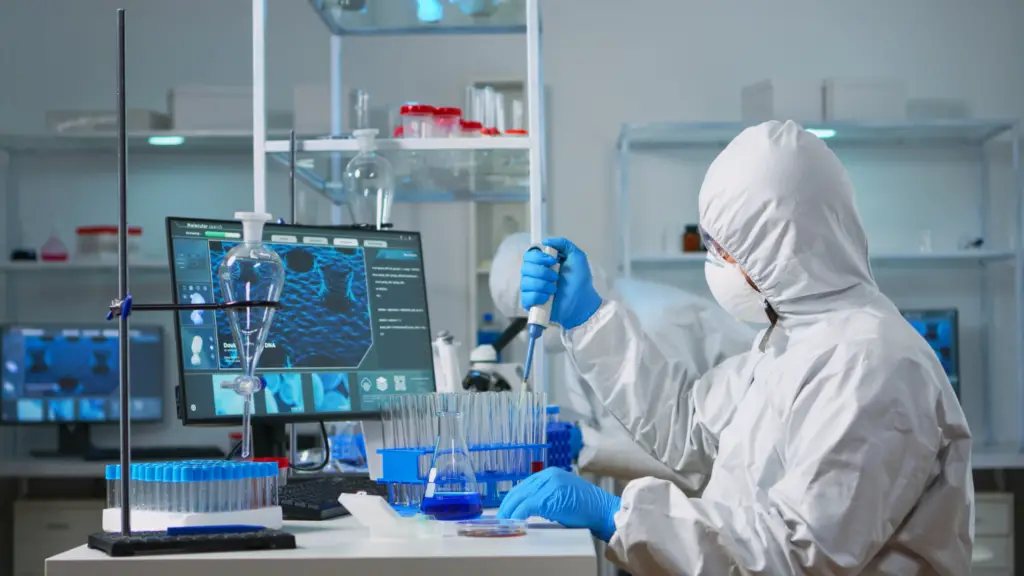As medicine continues to improve, a big trend in medical research is in the development of personalized medicine in which treatments are tailored to an individual’s needs. One of the key components of this research is bioconjugates, which are essentially molecular tools formed by connecting biological components with other molecules. Bioconjugates are leading the way in enhancing diagnostics and drug delivery, providing more effective and personalized treatment options.
Bioconjugates are very versatile and adaptable which means that they are very valuable for developing new, advanced medical solutions. They have the potential to both help in diagnosing diseases accurately and deliver drugs with precision amongst other applications, opening new possibilities for research and treatment in healthcare. In this article, we’ll discuss how these compounds are shaping the future of medicine and redefining our approach to drug delivery and disease management.

What are Bioconjugates?
Bioconjugates are small, hybrid molecules formed by linking biomolecules such as proteins or antibodies with other compounds. The chemical connection creates new functionalities, meaning that the new compound is capable of carrying out tasks that the individual components could not achieve alone. This fusion allows scientists to design highly specific tools and the almost endless possible combinations that are possible via tailored bioconjugation mean they can be used in a wide range of applications.
Within medicine, their primary function is to increase the precision and effectiveness of therapeutic and diagnostic procedures. By combining biomolecules with drugs or imaging agents, bioconjugates can target specific cells or tissues. This targeting reduces side effects and improves the treatment outcome.
In medical applications, bioconjugates can be used as imaging agents and targeted drug carriers. For example, they can help visualize tumors with high clarity or deliver chemotherapy drugs directly to cancer cells. These specialized roles have made bioconjugates a big topic of interest in research surrounding new, modern healthcare solutions. Their development represents a significant step forward in personalized medicine and diagnostics.
Bioconjugates in Diagnostics
Bioconjugates play an important role in enhancing diagnostic techniques. They provide significant advancements in imaging technologies, offering highly precise tools to identify diseases early.
Advanced Imaging:
Bioconjugates, such as antibody-conjugated quantum dots, are valuable in fluorescence imaging. These conjugates target specific biomarkers, which makes it possible to detect diseases like cancer at an early stage. Similarly, in MRI, bioconjugates can be used to improve how precise the images obtained are, aiding in the monitoring of disease progression.
Biosensors:
In biosensing, bioconjugates have made it much easier to detect biological components with high accuracy. For instance, DNA-functionalized biosensors can screen for genetic mutations and pathogens with very high sensitivity. These biosensors are crucial for early disease screening because they provide quick and accurate results.
Bioconjugates in Drug Delivery
One of the biggest areas of research surrounding bioconjugates is targeted therapies, in which bioconjugates are used to deliver drugs precisely to diseased cells. This targeted approach means that drugs have a higher therapeutic effectiveness and also reduce their impact on surrounding healthy tissue. Antibody-drug conjugates (ADCs) are a great example of this. These are combinational therapies that deliver potent chemotherapy drugs directly to tumor cells whilst sparing non-cancerous cells, therefore significantly reducing side effects.
Another significant advantage of bioconjugates is in controlled drug release. By attaching bioconjugates like polyethylene glycol (PEG) to drugs—a process known as PEGylation—medications can be modified to release gradually rather than all at once. This method extends the half-life of drugs and ensures a steady release into the bloodstream, which improves both efficacy and patient compliance.
Benefits and Challenges of Using Bioconjugates in Medicine
Bioconjugates are changing the way that diseases are diagnosed and treated because they make more specific and efficient medical techniques possible. Bioconjugates can be used to target diseased cells specifically whilst leaving healthy cells unharmed, greatly improving how effective a treatment is. By only targeting diseased cells in drug delivery, side effects are reduced and patient outcomes are improved. Understandably, these characteristics are highly sought after in the medical industry, particularly in fields such as cancer therapy.
Bioconjugates are very versatile – there are numerous combinations of molecules that can be joined together. This means that they can be tailored for use in diagnosing and treating a wide range of diseases. From infectious diseases to chronic conditions, bioconjugates have shown a lot of promise in various medical applications.
Despite the advantages, there are still some challenges in using bioconjugates. For example, making bioconjugates is still an expensive and complex process because they are still a relatively new technology. It’s expected that the cost of production will decrease over time as research into new synthesis methods continues.
Additionally, the stability of bioconjugates can be an issue and they can degrade in certain physiological environments which may impact how effective they are. New research is being done to make bioconjugates more durable so that they can survive in extreme pH levels, like in the stomach for example, and in higher temperatures, like experienced during a fever.
Regulatory hurdles present another challenge. Bringing new bioconjugate therapies to market involves navigating rigorous approval processes, which can be time-consuming and costly. These regulatory challenges can delay the availability of promising treatments, making it a significant barrier in the development and deployment of bioconjugate-based therapies.
Future Directions
New innovations in bioconjugation are making more and more advanced medical therapies possible. Technology such as gene-editing bioconjugates have a lot of promise in targeted treatment, and nanoparticle-based systems can significantly improve how efficient drug delivery is and therefore offer a way to change how we treat several diseases.
Collaboration between researchers across a wide array of fields is needed for the field of bioconjugation to continue improving. Chemistry, biology, and medicine industries must all come together in order for us to get the most potential out of these new technologies. Not only do we need to understand the medical applications of bioconjugates better, but we also need to develop ways of making them at an industrial scale.
It’s thought that bioconjugates could be the key to making personalized medicine a reality. By tailoring therapies to individual needs, they might offer more precise and effective treatments in the future. The idea is that in the future, patients could be offered treatments that are tailored to their unique biological makeup rather than generic medicines like what we currently use.










